A Beginner's Guide to Using AI Content Tools for Personalized Marketing Campaigns
10/11/20254 min read


Understanding Personalization in Marketing
Personalization in marketing refers to the tailoring of messages and experiences to individual consumers based on their behaviors, preferences, and needs. Unlike generic marketing approaches that treat all customers the same, personalized marketing strategies recognize the uniqueness of each customer, aiming to create relevant and engaging interactions. This shift towards personalization has arisen from the need to cater to an increasingly diverse audience in a digital landscape that allows for more targeted communication.
The rise of big data and sophisticated analytics has empowered marketers to segment audiences effectively, enabling the creation of personalized content that resonates with consumers on a deeper level. Statistics indicate that personalized marketing can significantly improve customer engagement and increase conversion rates. For example, a study by Epsilon found that 80% of consumers are more likely to make a purchase when brands offer personalized experiences. This underscores the importance of moving beyond one-size-fits-all messaging to create win-win situations where both brands and consumers benefit.
Successful examples of personalized marketing can be observed across various industries. Retailers like Amazon use machine learning algorithms to analyze customer browsing and purchase histories, enabling them to recommend products that align with individual interests. Similarly, Spotify employs personalized playlists curated based on listening habits, effectively enhancing user experience while driving customer loyalty. Such strategies illustrate that personalization not only captivates the audience but also drives measurable business results.
As marketers continue to navigate the dynamic digital environment, it becomes imperative to leverage AI tools for crafting tailored messages. These tools can analyze vast amounts of data, facilitating the development of targeted campaigns that speak directly to consumers' needs. Understanding the role of personalization in marketing is crucial for devising effective strategies that foster connection and encourage interactions that lead to conversions.
The Importance of Personalization in Today’s Marketing World
In an era characterized by information overload, personalization has emerged as a crucial element in modern marketing strategies. Consumers are inundated with advertisements and promotional messages, making it increasingly difficult for brands to capture their attention. As a response to this challenge, businesses are turning to personalized marketing campaigns to enhance customer engagement and satisfaction. This shift reflects not only changing consumer expectations but also the evolving dynamics of digital marketing.
Today's audience anticipates tailored experiences that cater specifically to their preferences and needs. The rise of data analytics, artificial intelligence, and machine learning has enabled companies to gather insights about their customers, leading to more effective segmentation and targeted messaging. A study by Epsilon found that 80% of consumers are more likely to make a purchase when brands offer personalized experiences. This statistic emphasizes the profound impact of personalization on driving consumer behavior and purchasing decisions.
Beyond driving sales, personalization also plays a significant role in cultivating customer loyalty and retention. When brands tailor their communications and offerings, they foster a deeper connection with their customers. For instance, retailers like Amazon excel at personalized recommendations, leading to higher customer satisfaction and repeat business. This approach not only increases immediate sales but also enhances overall brand reputation. Customers are more likely to advocate for brands that show an understanding of their individual preferences.
Moreover, successful personalized marketing strategies can positively impact a company’s bottom line. According to a report by McKinsey, personalization can lead to a 10-30% increase in revenue for companies that effectively harness customer data. As businesses of all sizes adopt personalized approaches, the competitive landscape is changing, highlighting the importance of adaptation to meet evolving customer expectations. In this context, leveraging AI content tools for personalized marketing campaigns becomes a strategic advantage, allowing brands to create meaningful connections with their audience.
Using AI Content Tools for Personalized Marketing: A Step-by-Step Guide
Leveraging AI content tools like ChatGPT and Jasper can significantly enhance your personalized marketing campaigns. The first step is selecting the right AI content tool that aligns with your business requirements. Evaluate tools based on their features, pricing, and compatibility with your existing systems. ChatGPT may be suitable for generating conversational content, while Jasper excels in creating structured marketing copy. Make a well-informed decision to ensure optimal utilization of these resources.
Next, you need to define your audience segments clearly. In personalized marketing, segmenting your audience means categorizing them based on shared characteristics such as demographics, behaviors, and preferences. Utilizing customer data from various sources, such as surveys, purchase histories, and social media interactions, will help you create detailed audience personas. This segmentation allows AI tools to generate tailored content that speaks directly to each group's unique needs, thereby increasing engagement and conversion rates.
Once audience segments are established, you can focus on generating personalized content for different marketing channels, including emails, advertisements, and social media posts. Utilize AI tools to draft compelling headlines, persuasive copy, and tailored messages appropriate for each platform. For example, an email might require a more formal tone compared to social media posts, which can be more casual. The key is to maintain brand consistency while ensuring that the generated content resonates with the targeted segments.
A/B testing and optimization are vital components of refining your personalized marketing campaigns. Use AI content tools to create multiple variations of your messages and assess their performance in real time. Analyzing the response rates will help identify what resonates most with your audience. Regularly optimizing your approach based on these insights will lead to improved messaging, engagement, and, ultimately, campaign success.
Measuring Success and Avoiding Common Pitfalls
In the realm of personalized marketing campaigns, measuring success is paramount to understanding the effectiveness of your strategies. Key performance indicators (KPIs) such as conversion rates, engagement levels, and customer retention rates are essential metrics to track. Conversion rates directly reflect the percentage of users who take the desired action, such as making a purchase or signing up for a newsletter. Engagement levels, often assessed through email open rates and click-through rates, help determine how effectively your content resonates with your audience. Customer retention rates provide insights into how well your campaign retains clients over time, indicating overall satisfaction and loyalty.
One common pitfall marketers encounter is relying on data without context. Metrics can provide valuable information, yet without understanding the audience and their behaviors, the data may lead to misguided strategies. Additionally, over-personalization can alienate customers; striking a balance is crucial. Another mistake involves neglecting A/B testing, which is essential for optimizing campaigns based on real user responses. Through A/B testing, you can assess different versions of your marketing content and determine which yields the best results.
There are various tools available, both free and paid, to aid in tracking and assessing your campaign's effectiveness. For those with limited budgets, Google Analytics offers robust analytics features at no cost, providing insights on user behavior and campaign performance. Paid tools such as HubSpot and SEMrush offer comprehensive suites that include advanced analytics and marketing automation capabilities, enabling deeper insights. Regularly reviewing these metrics and tweaking your strategy accordingly will foster continuous optimization, ensuring sustained success in your personalized marketing efforts.
Connect
Stay updated with our latest tutorials.
Follow
Subscribe
© 2025. All rights reserved.
